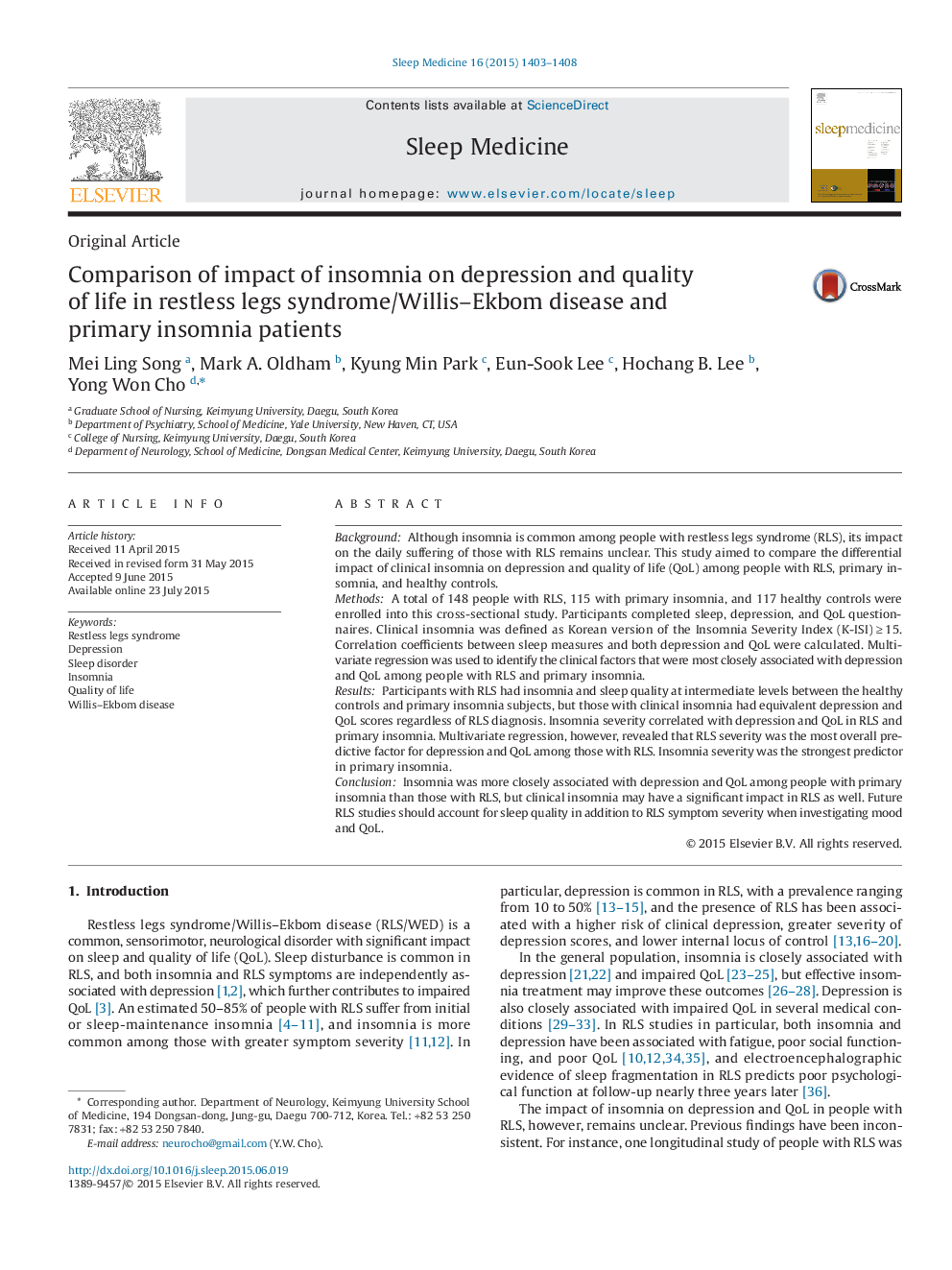| کد مقاله | کد نشریه | سال انتشار | مقاله انگلیسی | نسخه تمام متن |
|---|---|---|---|---|
| 6060338 | 1200225 | 2015 | 6 صفحه PDF | دانلود رایگان |
- Participants with restless legs syndrome (RLS) had better sleep quality than those with primary insomnia.
- Insomnia severity correlated with depression and quality of life (QoL) in RLS and primary insomnia.
- Participants with clinical insomnia had equivalent depression and QoL, regardless of RLS diagnosis.
- RLS severity was the most predictive factor for depression and QoL in RLS.
- Insomnia severity was the strongest depression and QoL predictor in primary insomnia.
BackgroundAlthough insomnia is common among people with restless legs syndrome (RLS), its impact on the daily suffering of those with RLS remains unclear. This study aimed to compare the differential impact of clinical insomnia on depression and quality of life (QoL) among people with RLS, primary insomnia, and healthy controls.MethodsA total of 148 people with RLS, 115 with primary insomnia, and 117 healthy controls were enrolled into this cross-sectional study. Participants completed sleep, depression, and QoL questionnaires. Clinical insomnia was defined as Korean version of the Insomnia Severity Index (K-ISI)ââ¥â15. Correlation coefficients between sleep measures and both depression and QoL were calculated. Multivariate regression was used to identify the clinical factors that were most closely associated with depression and QoL among people with RLS and primary insomnia.ResultsParticipants with RLS had insomnia and sleep quality at intermediate levels between the healthy controls and primary insomnia subjects, but those with clinical insomnia had equivalent depression and QoL scores regardless of RLS diagnosis. Insomnia severity correlated with depression and QoL in RLS and primary insomnia. Multivariate regression, however, revealed that RLS severity was the most overall predictive factor for depression and QoL among those with RLS. Insomnia severity was the strongest predictor in primary insomnia.ConclusionInsomnia was more closely associated with depression and QoL among people with primary insomnia than those with RLS, but clinical insomnia may have a significant impact in RLS as well. Future RLS studies should account for sleep quality in addition to RLS symptom severity when investigating mood and QoL.
Journal: Sleep Medicine - Volume 16, Issue 11, November 2015, Pages 1403-1408
